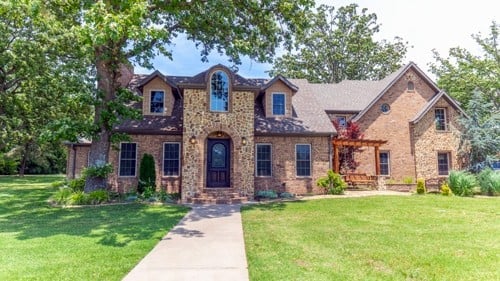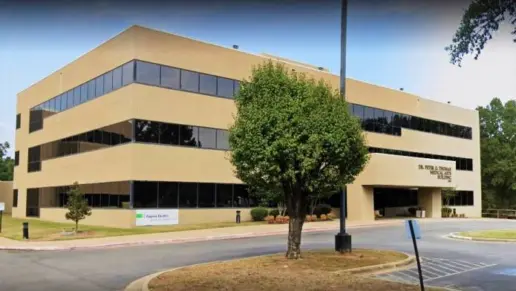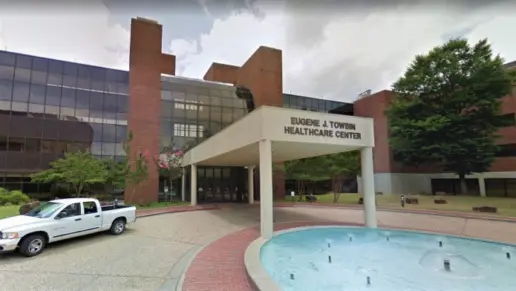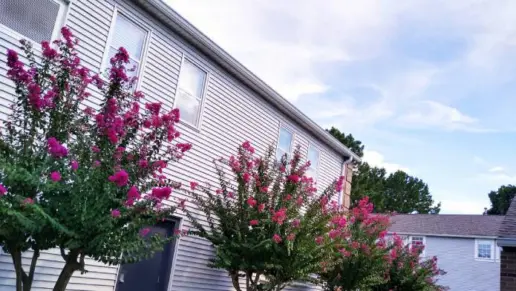About EagleCrest Recovery
EagleCrest Recovery is a behavioral health and substance use disorder treatment center in Bentonville, Arkansas. They offer a comprehensive treatment program for adults with substance use and co-occurring disorders.
They’re in network with many insurance providers, but they’ll work with your provider even if they’re not in network.
The facility uses the DCAP model (detoxification, clinical assessment, and preparation) of recovery. The first step is detox where you’ll rid your body of toxic substances. During detox, a medical staff will manage your medications and help you through any uncomfortable withdrawal symptoms.
After detox, you’ll move to the clinical assessment phase. This includes nutrition and sleep assessments, drug screening tools, and questionnaires. Questionnaires include the Beck Depression Inventory, Burns Anxiety Inventory, and the Adverse Childhood Experience Questionnaire. In the preparation phase, your team finalizes all the facets of your next level of care.
In the residential program, you’ll work with professional counselors to get to the root of your addiction. This may include a co-occurring disorder such as depression, anxiety, or post traumatic stress disorder (PTSD). You’ll have medication assisted treatment (MAT) if appropriate. These prescriptions can help manage your withdrawal and cravings.
You’ll also participate in psychoeducational groups and therapy. Therapy sessions include individual, group, and family therapy. Based on your unique treatment plan, you may have cognitive behavioral therapy (CBT), dialectical behavioral therapy (DBT), and anger management. They also offer cooking classes to learn proper nutrition, life skills, yoga, art, and music therapy.
The center also has an intensive outpatient program (IOP). The IOP is a good program to step down to after inpatient treatment. It may also be a good program if you have a moderate addiction or can’t commit to the inpatient program due to employment or family. You’ll live at home while attending the program.
The IOP offers group and individual therapy. You’ll have the same therapist as you work through the 12-week program. You’ll learn better communication skills through group therapy and you’ll have support from others in similar situations as yours.
Former clients are effusive in their praise of the staff. Several said the program saved their lives and the staff was supportive and easy to talk to.
Rehab Score
Gallery

Location
Accepted Insurance
Other Forms of Payment
Private insurance refers to any kind of healthcare coverage that isn't from the state or federal government. This includes individual and family plans offered by an employer or purchased from the Insurance Marketplace. Every plan will have different requirements and out of pocket costs so be sure to get the full details before you start treatment.
Self-pay involves paying for treatment out of your own pocket. You can use savings or credit, get a personal loan, or receive help from family and friends to fund your treatment. If you don't have insurance or your insurance plan doesn't cover a specific program, self-pay can help ensure you still get the care you need.
Addiction Treatments
Levels of Care
Programs


Clinical Services
Developed in the 1970s, dialectical behavior therapy (DBT) is a type of psychotherapy based in cognitive behavior therapy. DBT is designed specifically to help people who experience emotions intensely. It is used to treat substance use disorder, anxiety, and depression, among other mental health disorders.
Group therapy offers men and women the opportunity to learn essential coping skills from their peers who have practiced these skills in the community. You learn new communication techniques and relapse prevention strategies that promote sobriety and sustainable recovery.
Individual therapy gives men and women in Arkansas the chance to engage in one on one therapy sessions that focus on identifying personal triggers and high risk situations for drug and alcohol addiction. Your therapist works together with you to develop coping strategies and build resilience that promotes sustainable recovery.
The goal of trauma therapy is to address the lingering mental, emotional, and physical lingering effects of a traumatic event. Your therapist helps you process this trauma and build resilience to face future challenges.
Families in Arkansas use family therapy to enhance communication and understand the effect that addiction has on family members. The goal is to help members identify and modify negative behaviors and create a more cohesive and supportive environment that is conducive to recovery.
Developing life skills while undergoing rehab treatment in Arkansas is a crucial part of your recovery. During treatment, you may focus on learning communication skills, critical thinking skills, problem solving, self awareness, assertiveness, and coping skills.
If you use substances heavily, this can interfere with your body's ability to absorb and use nutrients. This results in malnutrition and other health problems. Nutrition therapy addresses these deficiencies to support healing and recovery.
Recreational therapy uses physical activity and hobbies to support alcohol and drug addiction recovery in Arkansas. They help improve your physical health and provide you with a sense of accomplishment, which is critical to overcoming addiction. These activities could include gardening, music, or sports. They help to promote relaxation and build a supportive community.
Combined with behavioral therapy, nicotine replacement therapy can be an effective way to stop smoking. A variety of therapies are available. Some you can get over the counter, while others require a prescription from your doctor.
Amenities
-
Yoga Studio
-
Residential Setting
-
Private Rooms
-
Hiking
-
Walking Trails
Accreditations

The Joint Commission, formerly known as JCAHO, is a nonprofit organization that accredits rehab organizations and programs. Founded in 1951, the Joint Commision's mission is to improve the quality of patient care and demonstrating the quality of patient care.
Joint Commission Accreditation: Yes
Contact Information
1101 SW Coventry Blvd
Bentonville, AR 72712



